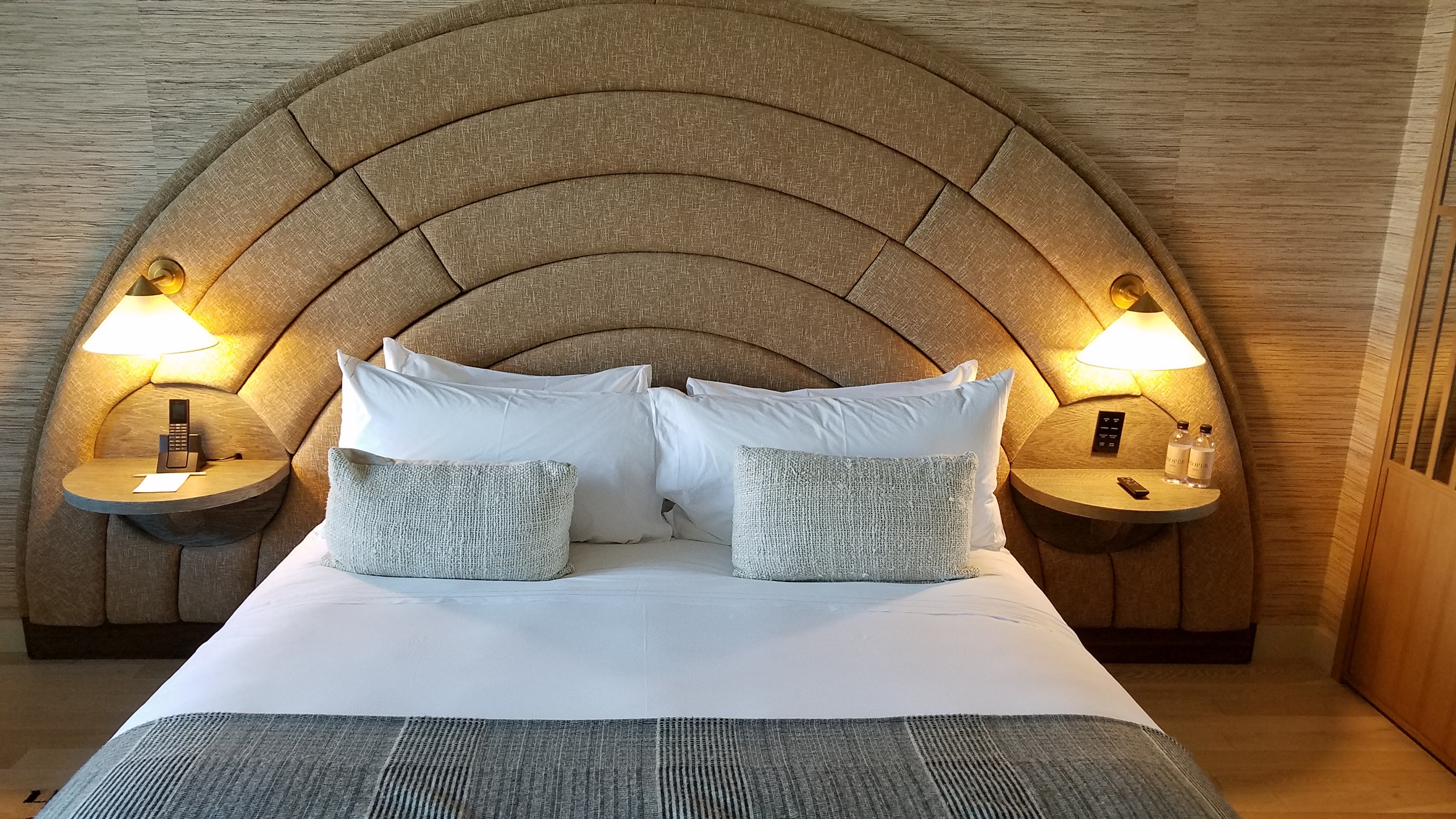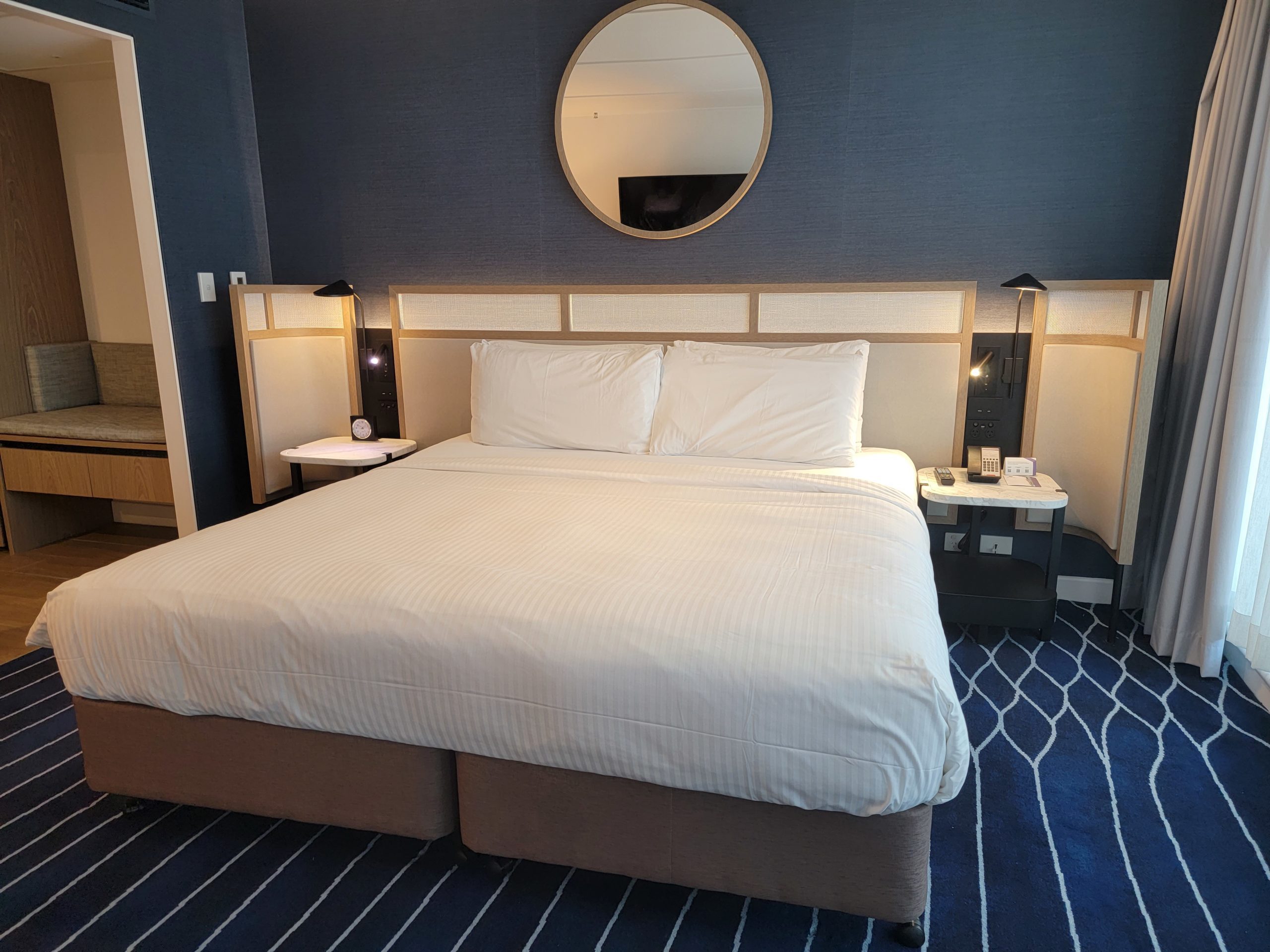When former United Airlines CEO Oscar Munoz introduced his airline’s new business class product – from better seats, to new lounges with sit down dining so you could board the plane having already eaten, to new bedding and pajamas – he declared, “Sleep is the new black.”
Getting rest enroute to your destination helps you be more productive when you get there. I find that having your hotel room ready when you arrive matters too, take a short nap and then head out to dinner and go to bed on local time will help you adjust completely once you’re there.

But in an increasingly sleep-deprived world, some people are now making sleep the point of the vacation. That will be anathema to many who believe you should go somewhere and experience the place, not experience sleep, which is something you can and should do every day at home.
Going on a vacation might seem like a rather unconventional way to try to improve your sleep habits.
But sleep tourism has been growing in popularity for a number of years, with an increasing amount of sleep-focused stays popping up in hotels and resorts across the world.
Interest has skyrocketed since the pandemic, with a number of high profile establishments focusing their attention on those suffering from sleep-deprivation.

Starwood scored one of the biggest hotel marketing coups ever with the ‘Westin Heavenly Bed’ and guests began to choose the chain over competitors for the one thing that matters most for sleep. Other brands went all-in on trying to brand their beds. Much of it just comes down to a decent mattress and bedding and replacing them on a proper cycle. There’s been very little real advance in beds, though I now hear great things about Eight Sleep but haven’t yet tried it myself.
Much of the resort sleep focus seems gimmicky. Rosewood Hotels has their “Alchemy of Sleep” branded bundle of amenities. Give me,
- A good bed
- A variety of pillows, some hard and others soft, but enough pillows in any case
- A quiet room, well-insulated from noise created by staff and other guests
- Blackout shades without gaps which let in light

The fundamental purpose of a hotel room is to have a quiet, private place to sleep and shower. It should have a place to work (a desk!) and sit.
To be sure, a great hotel is indulgent, whatever that means to you – room service, kids jumping on the bed, staying up late and watching a move. And a great hotel connects with you on an emotional level. You took home the toiletries so you could bring a piece of the stay back with you, at least until so many hotels replaced those with wall-mounted bulk toiletries. I’m not sure any hotel commercial was better than Sheraton’s Belong.
Great vacations might involve a nap, or sleeping hard and uninterrupted. But I’m not sure that “a sleep-inducing meditation recording” or “scented pillow mist” are anything more than a gimmick.


Don’t want to spend 10 thousand bucks to sleep. I travel the world to do things and experience
I can get a great nights sleep anywhere
Get rid of desks in normal hotel rooms!
Have some rooms set aside with desks for those unfortunate enough to have to work in their room.
@ Gary — I sleep more on vacation than at home. I love being able to take a 2-3 hour midday nap. Most tourism sites are traps anyways. I am happy walking around for a few hours, riding the local public transit or just having dinner. That’s submersive enough for me. Maybe in 10 years when I am retired, I will have more time to venture out and see things and to travel to more far-flung places.
You forgot the most important element of obtaining sleep in hotels.
Give us doors that do not self slam shut.
I know of very few hotels that provide these.
The Industry has gone dead since Starwood became dust
merging with the corrupt predatory Marriott.Way Less innovation these past few years
Beds are getting worse in quality and comfort and the words good bed means absolutely nothing when comfort isn’t related to price or quality with sleep comfort being so
personally subjective.
But I’m one who seeks good sleep when I travel as it helps you enjoy the experience better
feeling well and keeps you safer from germs and virus having a strong rested immune system
Then you can also exercise and recover from jet lag quicker
My family on the other hand run all day and night right off the plane till they crash and burn
Not my style
Maybe this reflects the growing number of people who have become caregivers for family members…on a support group page so many seem to long for a night of uninterrupted sleep.
A fool and his money…
Jjojo
+1. Love it, so true
I speak from some experience, as I always take day or two after a big event to hibernate in a hotel room … I’ve done that for years. The biggest problem with this plan is housekeeping, and, as Joshua points out, room doors that smash shut. Hotel staff will buzz around a floor for several hours making such a racket that nobody could get any sleep. They just don’t give a damn. A good sound machine and some red wine is about the only way to win the noise battle with hotel staff.
I actually bought a Westin Bed because I liked it so much. Amazing bed.
I have booked hotel just to sleep my old apartment was loud neighbors.
The thing with the heavenly beds is they are actually too damn good. Last time I had one, I woke up totally refreshed at 4am! That drove me nuts